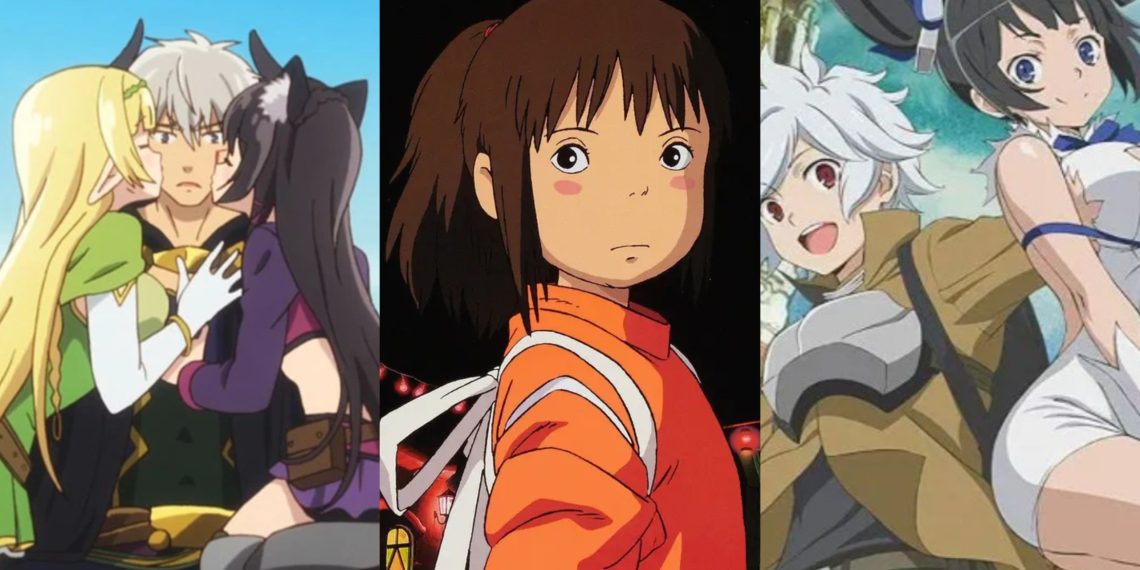Isekai anime are often imaginative and enjoyable, filled with heart and adventure. This genre centers around characters who find themselves transported to other realities, where they must survive while heading on missions or quests. The premise of isekai allows for action, introspection, personal growth, and stunning animation.
Each year, a plethora of isekai anime are released, many of which become timeless classics. The genre’s ability to unleash creators’ imaginations makes it fertile ground for some of the most compelling storytelling in fiction.
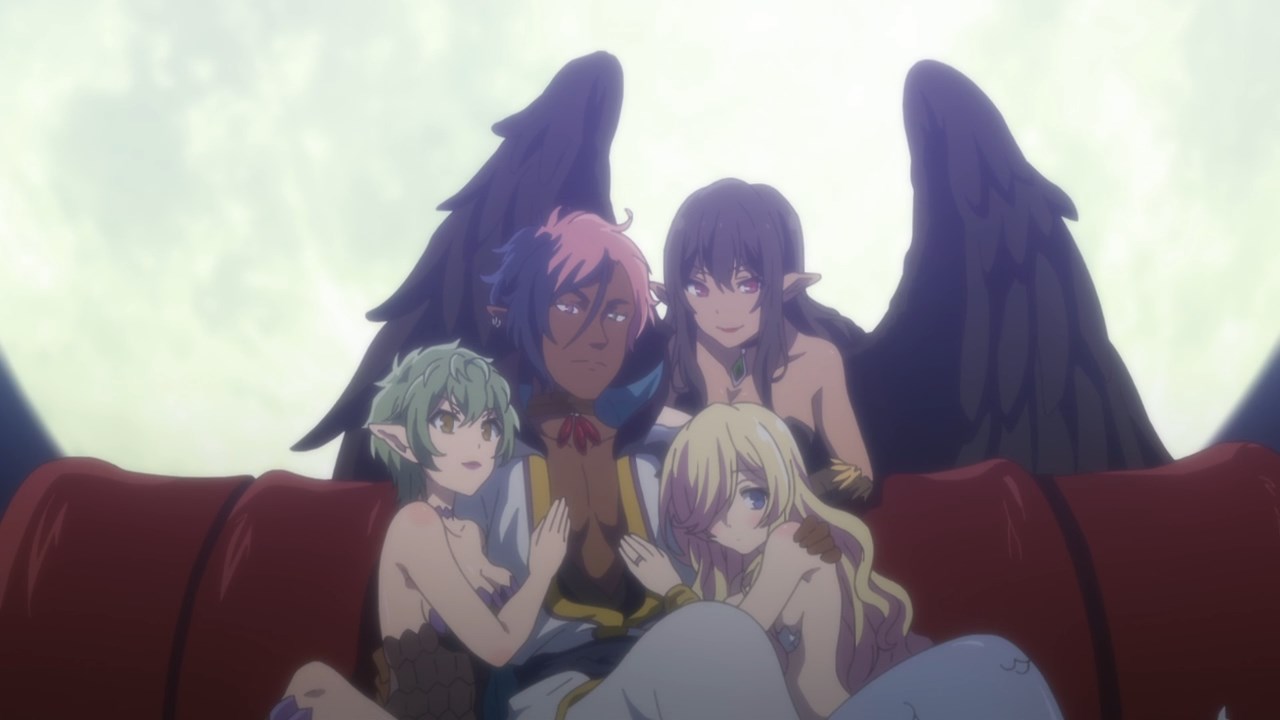
These anime have themes of heroism, friendship, and self-discovery against the backdrop of fantastical realities filled with magic and mystery. They charm audiences with their unique characters and intricate plots, blending fantasy elements with emotional depth.
From the escapades of overpowered protagonists to the challenges of adapting to new lives, isekai anime delivers entertainment and meaning in equal measure. They invite viewers to ponder the possibilities of parallel universes and the resilience of the human spirit in the face of adversity.
1) That Time I Got Reincarnated as a Slime
That Time I Got Reincarnated as a Slime has swiftly become a beloved series with a massive following, now entering its fourth season to continue Rimuru Tempest’s story. Once a person slain in his former life, Rimuru woke up in a new dimension as an amorphous blob.
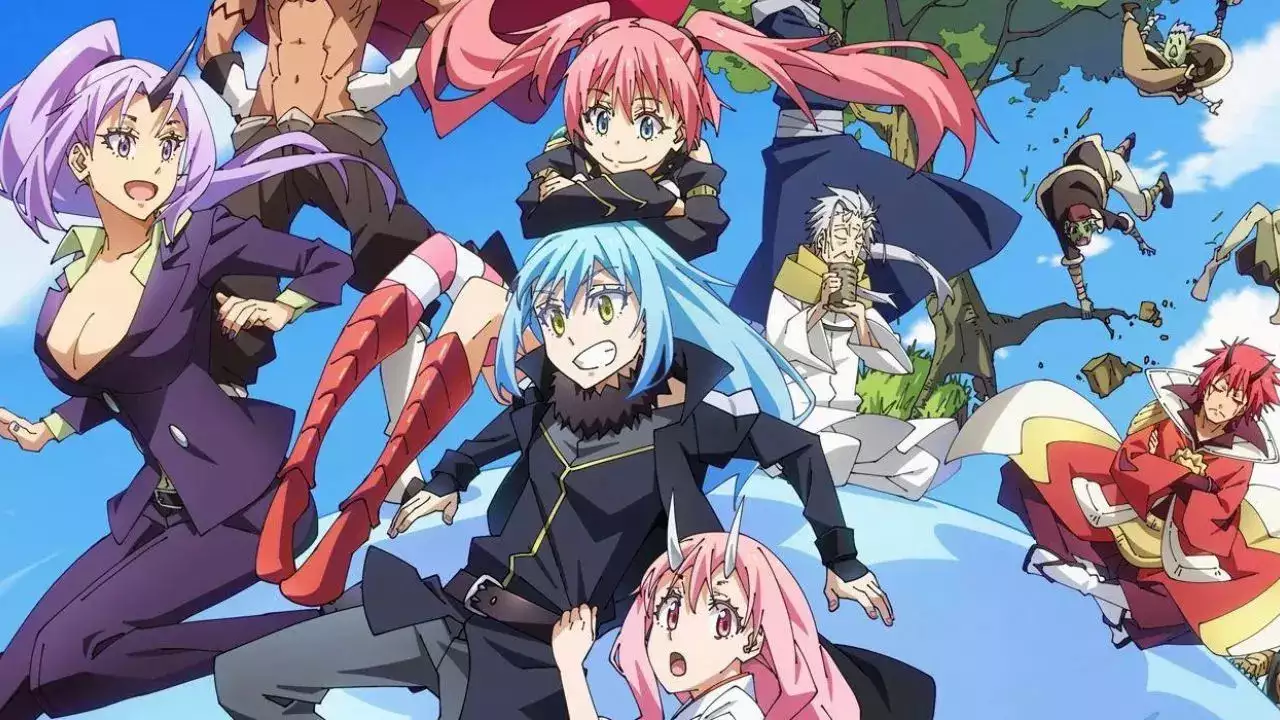
Through a string of remarkable events, he evolved into a formidable demon lord just as he was about to establish his own nation and reshape the unfamiliar reality he now called home.
That Time I Got Reincarnated as a Slime has it all: endearing characters, thrilling action, and a touch of risqué comedy, making it a delightful watch for any viewer.
2) KonoSuba
KonoSuba stands out from typical fantasy isekai anime by not taking itself too seriously. When Kazuma dies, he faces a gorgeous yet annoying goddess who offers him a choice: move on or be reincarnated.
Being a selfish NEET, Kazuma opts for the latter and is transported to a dimension where he’s tasked with defeating the demon lord.

Despite Kazuma’s reluctance to be a hero and his knack for avoiding danger, he soon realizes that moving on might have been the better option. The series is packed with absurd antics and a memorable cast of characters who leave a hilarious impression, making KonoSuba a highly entertaining watch.
3) Overlord
Overlord tells the story of an MMO guild leader who finds himself mysteriously transported to another dimension transformed into his in-game character—an undead lich named Ains Ooal Gown. With no memory of how he got there, Ains begins to understand this new life, discovering similarities to the game he once played.
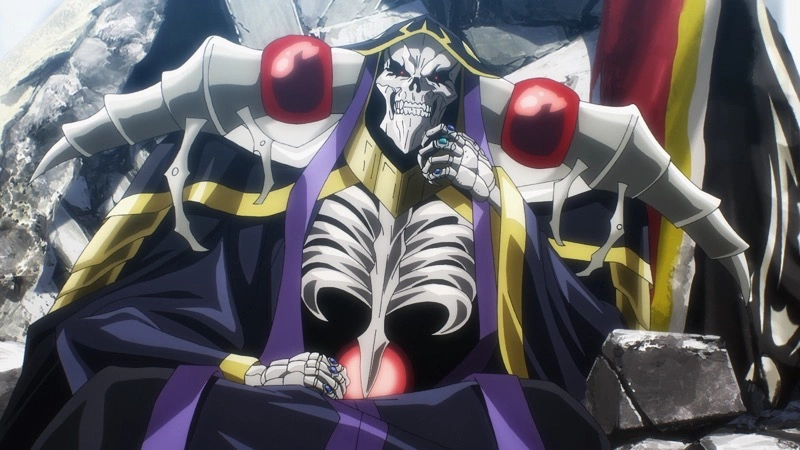
Accompanying Ains are the NPCs of his guild, who now serve as his loyal subjects. Ains maneuvers this unfamiliar space with a mix of ambition and curiosity. On one hand, he seeks to assert control over this new life, while on the other, he strives to protect it.
4) How To Not Summon A Demon Lord
Takumo is a dedicated video game enthusiast, spending all his days immersed in his favorite MMO as Diablo, the game’s strongest character. His life revolves around conquering opponents in the virtual reality, disconnected from reality.
One day, Takumo is unexpectedly summoned by a powerful spell, finding himself transported to a reality that eerily resembles his beloved game.
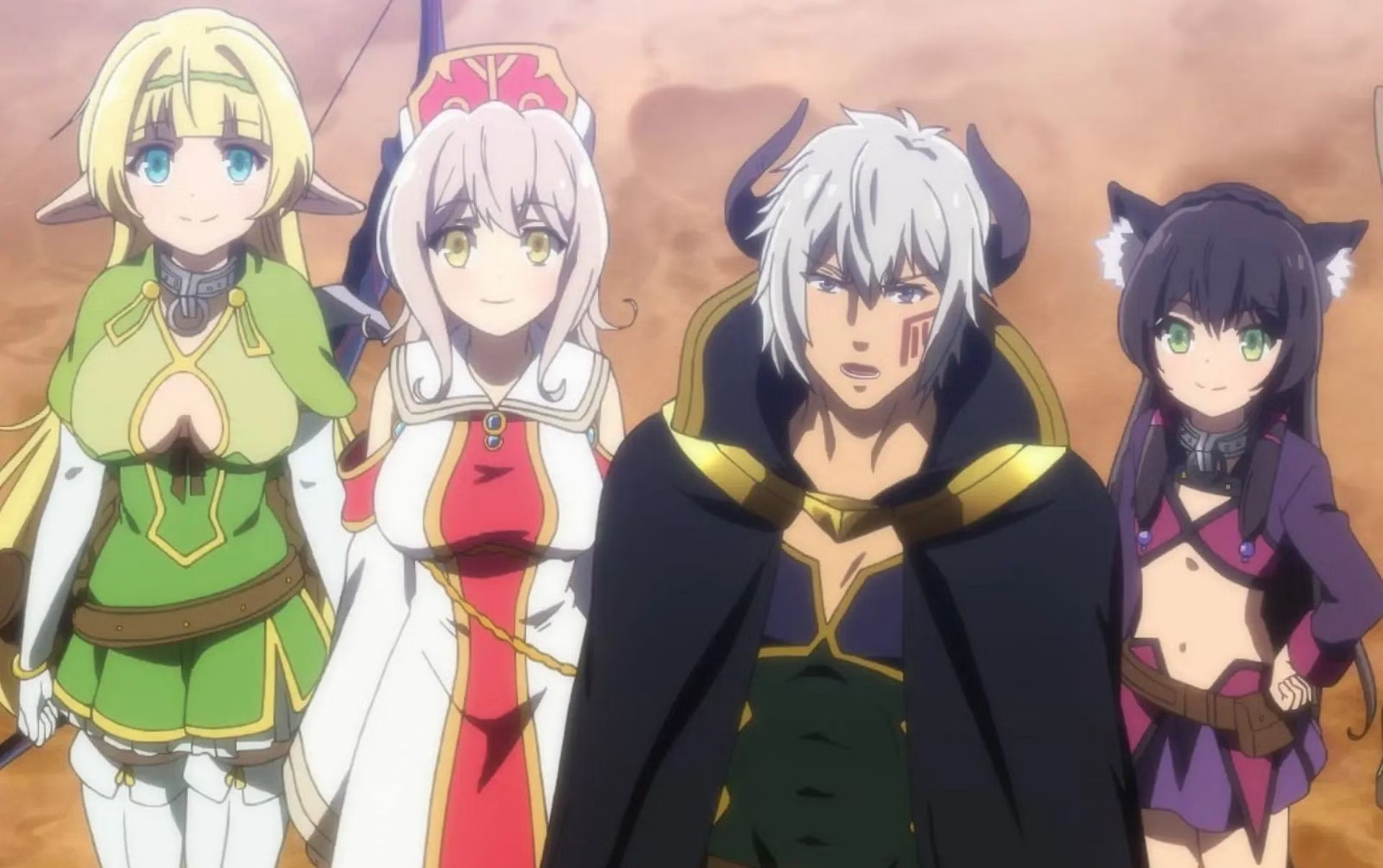
To his surprise, he has taken on the form of his game character, Diablo. Now, he must understand this new reality alongside the two girls who summoned him, working together to break the spell binding them.
As Takumo adjusts to his new life, he discovers he is the most powerful being in the kingdom, a role he never imagined outside of the virtual space.
Alongside his companions, he heads on a journey filled with challenges, where he must learn to wield his newfound abilities responsibly and confront the consequences of his virtual prowess.
5) Is It Wrong To Pick Up Girls In A Dungeon?
Bell is an aspiring adventurer who struggles with his skills, unable to tackle the challenging dungeons that are crucial. He finds solace in his devotion to the goddess Hestia, who is his only supporter and worshipper.
Despite his lack of success, Bell’s life takes a dramatic turn when a life-threatening encounter forces him to discover his true potential. Suddenly, he becomes the center of attention, drawing the interest of other gods and goddesses—some who support him and others who view him as a threat.
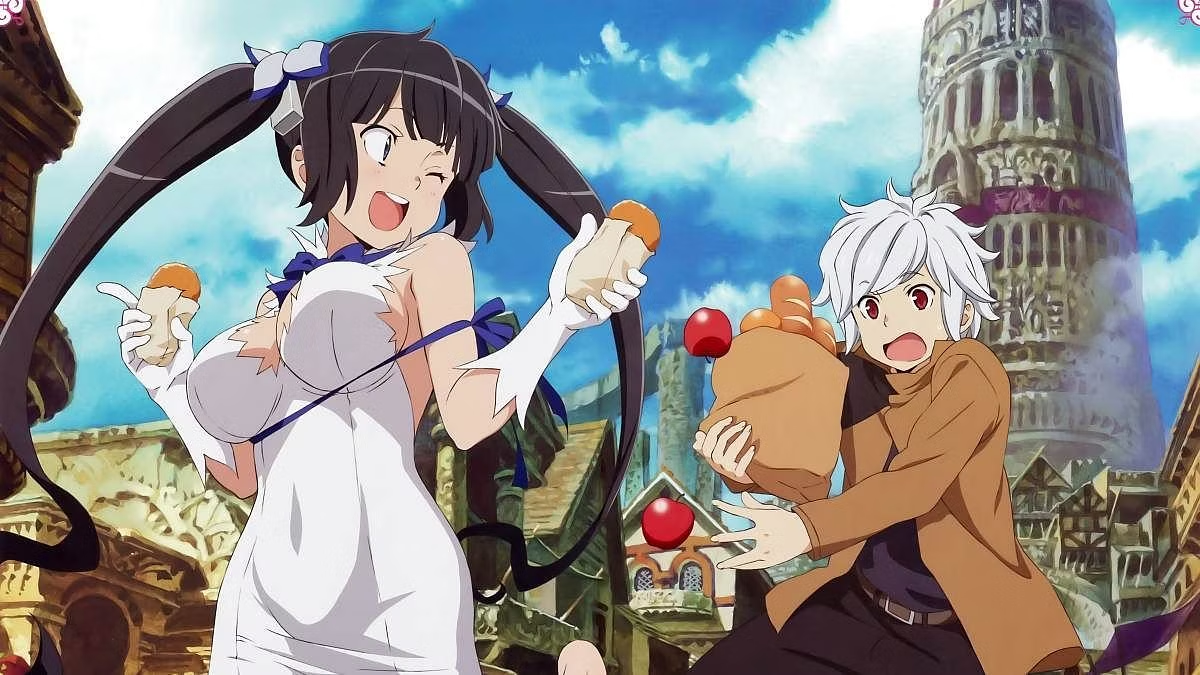
As Bell understands his newfound fame and the challenges that come with it, he gathers loyal companions who join him on his quest to become the greatest adventurer.
With their help, Bell heads on a journey filled with trials and victories, aiming to prove himself against all odds and earn his place among the legends of Is It Wrong To Pick Up Girls In A Dungeon?
6) I’m In Love With The Villainess
season. “I’m In Love With The Villainess” puts a unique twist on this trend by having the protagonist awaken as the heroine of an otome game instead of the expected villainess. Rather than pursuing any of the male candidates in the reverse harem, she chooses to romance the villainess herself.
Both Inori’s manga and light novel adaptations have garnered high praise, setting the stage for what could have been a brilliant anime adaptation. While the anime didn’t quite meet all expectations, it still delivered a solid performance.
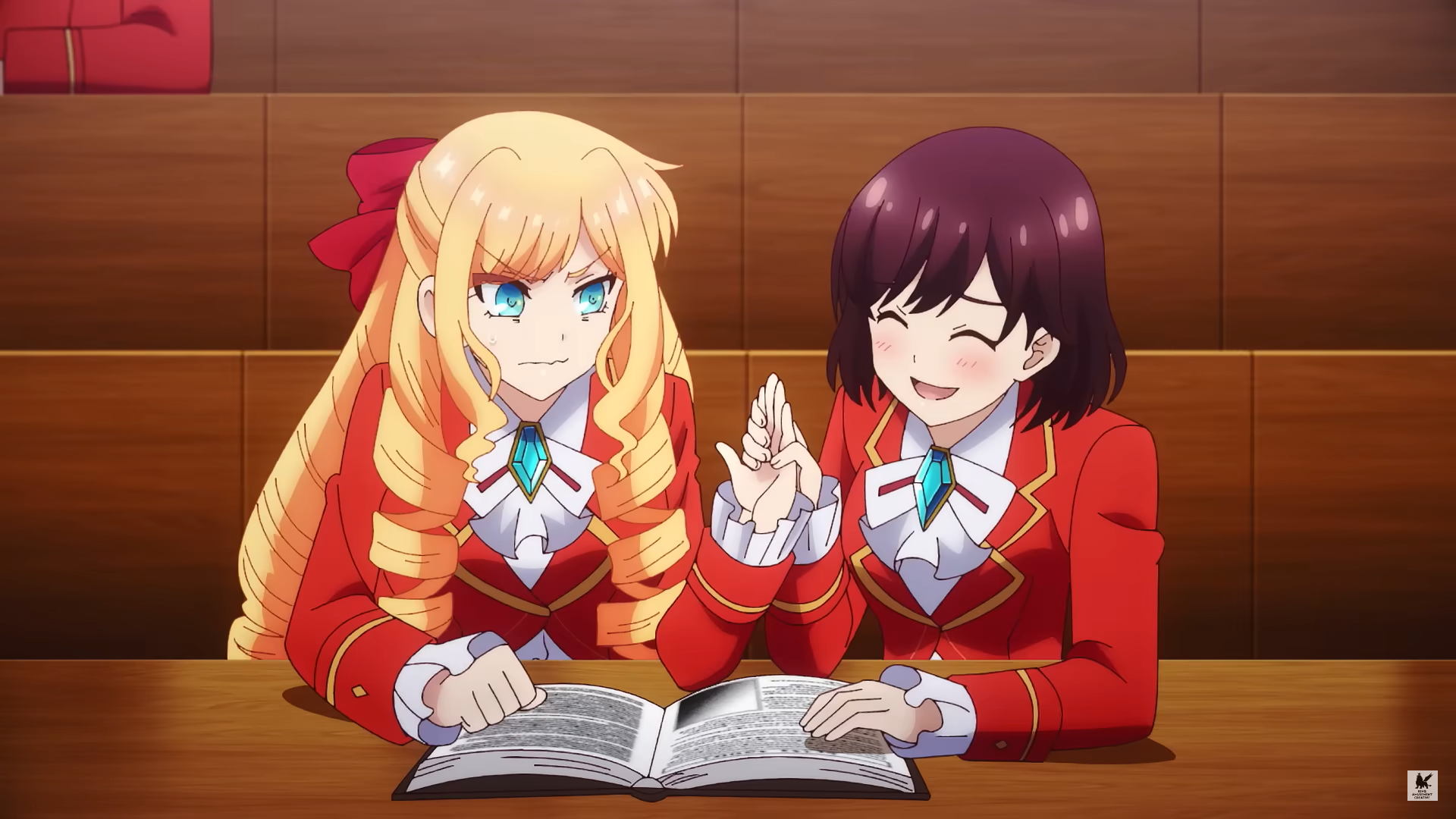
The humor in the series, while occasionally repetitive, manages to land effectively within individual moments. The dynamic between Rae and Claire is particularly enjoyable, starting off strong from their first scene together. Their one-sided love affair evolves gradually from somewhat stalker-ish behavior to a more wholesome dynamic.
7) KamiKatsu: Working For God In A Godless World
Yukito, the son of a cult leader, meets a tragic end at the hands of his father during a ritual, only to awaken in a reality devoid of gods. Initially underwhelmed by this new reality, Yukito soon comes to appreciate the simplicity of his new life, viewing it as a significant improvement over his previous existence.
However, everything changes when he discovers that two of his friends have been marked for death simply because they fear dying.
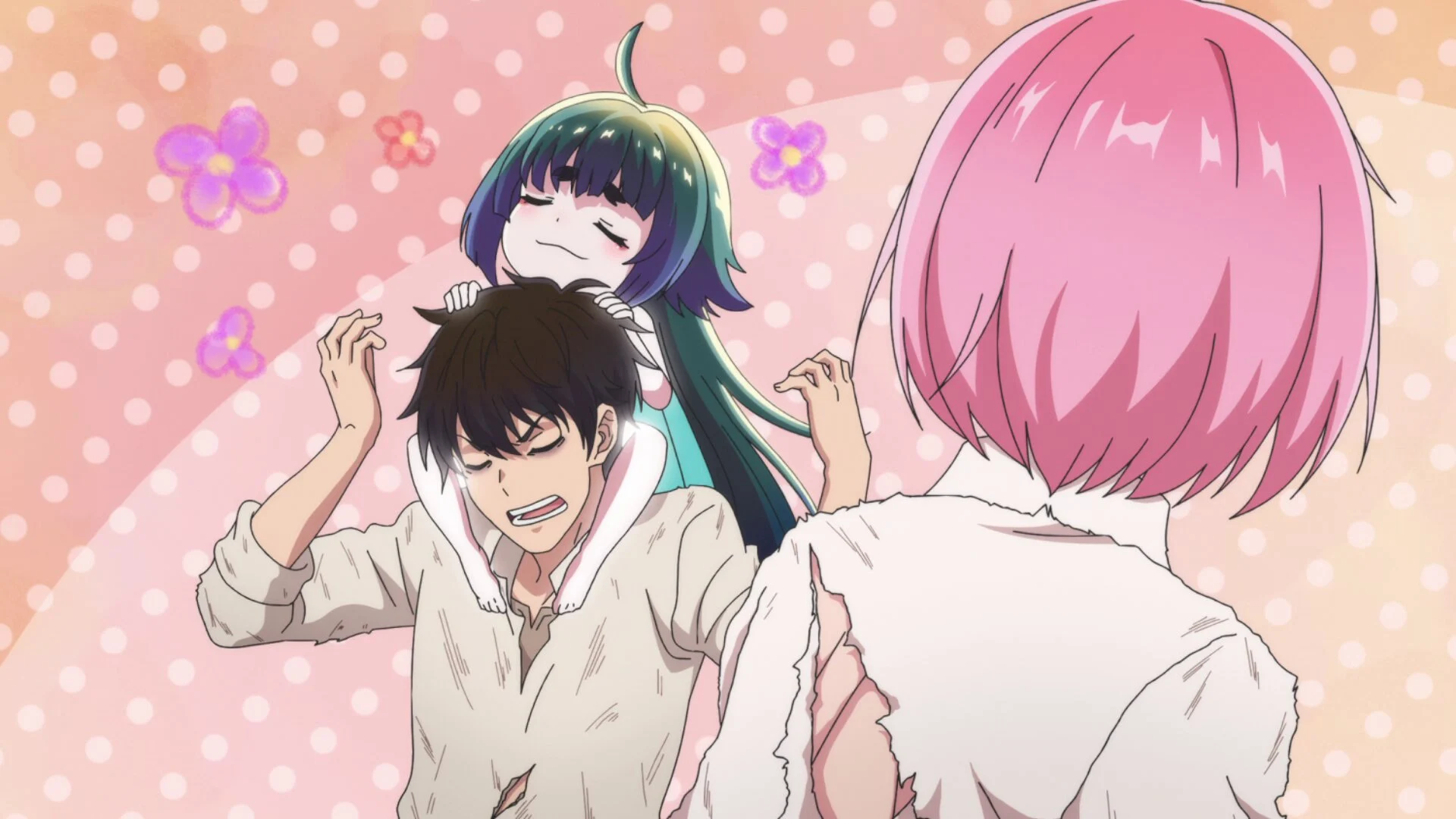
The absence of spirituality has led to death being treated as a mundane occurrence, and those who fear it are ostracized. Fortunately for Yukito, his former cult’s deity appears before him to offer assistance.
The anime oscillates between lighthearted comedy and dark, intense scenes, often within moments of each other due to its fast-paced storytelling. Viewer reactions to this isekai anime vary widely; some may find it exhilarating while others might find it off-putting, but few will describe it as boring.
8) Re: Zero – Starting Life in Another World
Re: Zero – Starting Life in Another World stands out as one of the best isekai anime, focusing on an ordinary guy thrown into extraordinary circumstances. While it embraces many typical isekai themes, its exceptional writing takes it above the rest. Subaru, the main character, is relatable and likable, and the entire cast is equally compelling.
Initially, Subaru may come across as obnoxious due to his self-awareness of the isekai trope. However, this self-awareness plays a crucial role in the story, and the anime effectively dismantles Subaru’s defenses and arrogance, leading to powerful and uncomfortable moments.
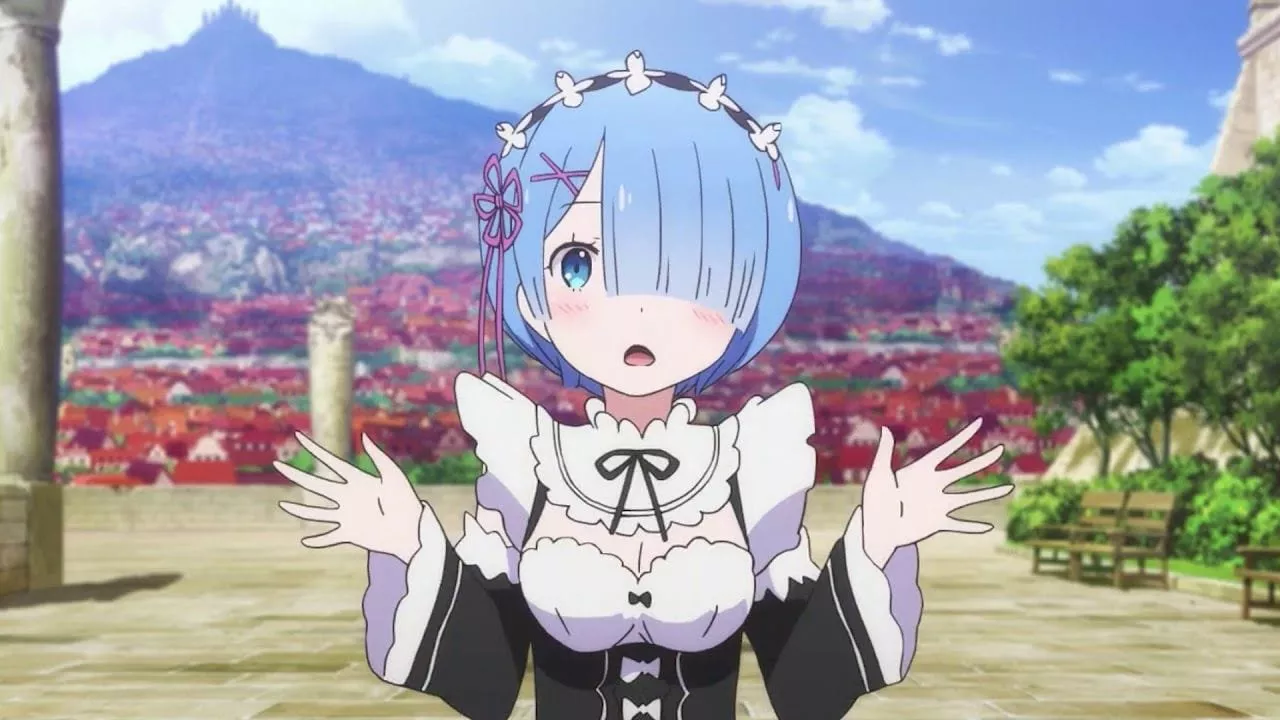
Even after these turning points, Subaru’s flaws are not easily forgotten, and he continues to make mistakes that carry serious consequences.
Season 1 quickly distinguishes itself from other isekai anime with its strong character development and engaging plot. Season 2 builds on this foundation, offering even more depth to secondary characters and their stories.
9) Mushoku Tensei: Jobless Reincarnation
Mushoku Tensei: Jobless Reincarnation stands out as one of the most divisive isekai anime series. Adapted from a popular light novel, it tells the story of Rudeus, a NEET who is reincarnated in a fantasy dimension with all his memories intact and a direct connection to a god-like entity.
This unique setup allows Rudeus to rapidly develop his magical abilities, making him a formidable force. However, he remains deeply flawed, carrying scars from his previous life and displaying some unsavory personality traits.
Rudeus can be quite unlikeable, particularly in the first season, where he often invades others’ personal space and exhibits a self-absorbed attitude.
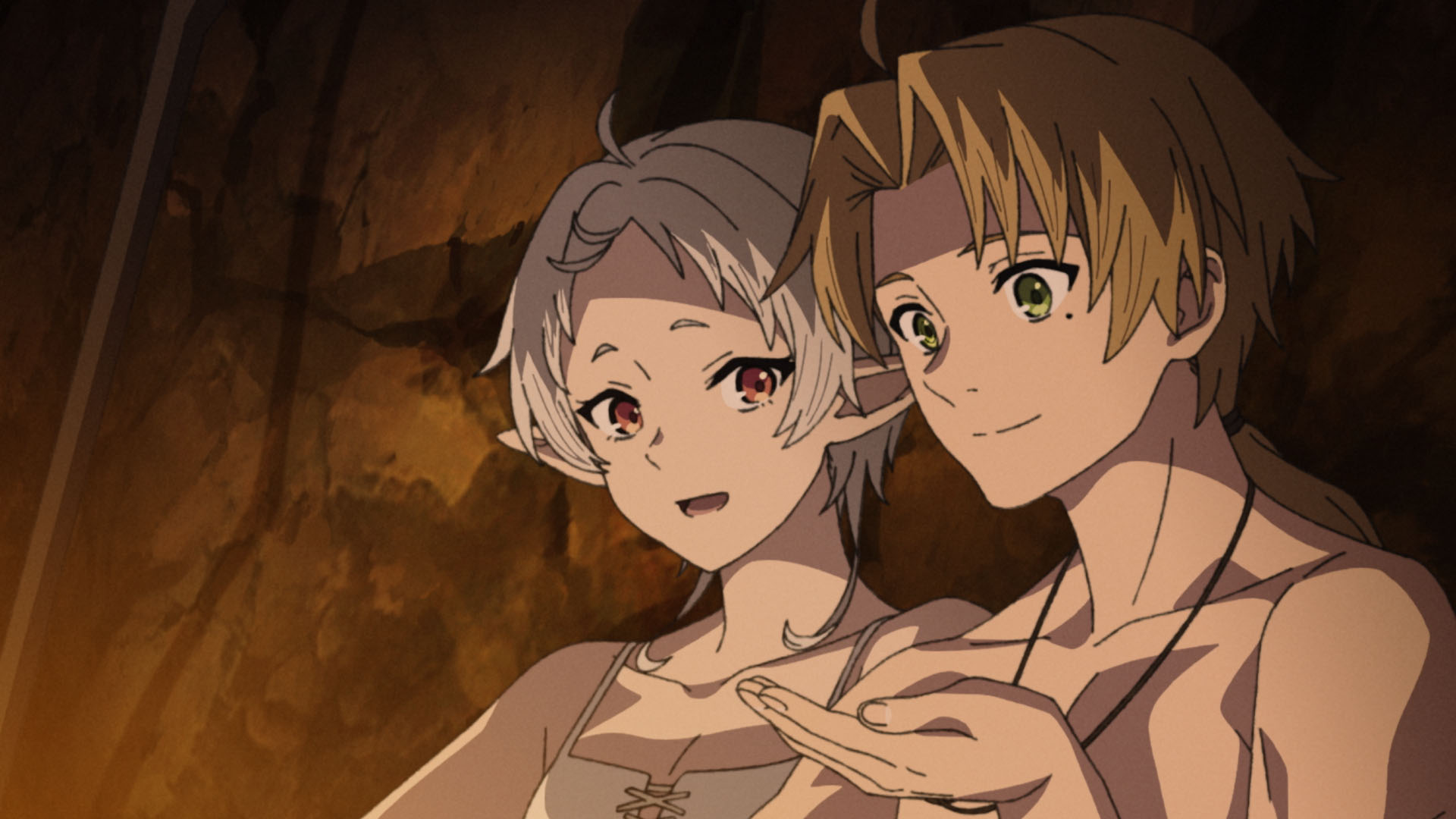
While he undergoes some character growth throughout the story, it’s subtle and occasionally overshadowed by comedic moments that can feel overly indulgent. Despite his flaws, Rudeus is a complex protagonist compared to many others in the isekai genre.
Beyond Rudeus, Mushoku Tensei excels in its storytelling. It is intricately crafted, gradually drawing viewers into a dark fantasy universe with a rich history that extends far beyond the protagonist’s immediate surroundings. The central plot is compelling and doesn’t shy away from introducing new twists and turns with each arc.
10) Log Horizon
Starting as yet another MMORPG-based isekai, Log Horizon quickly carved out its niche with its remarkably intelligent storytelling. Unlike many other shows in the genre, once the main characters find themselves in Elder Tale, they begin building the kind of society they had always dreamed of.
The series stands out for its sharp and well-paced narrative, using action judiciously without relying on it to fill slower moments. It meticulously addresses the challenges of establishing a new society and ensuring peaceful coexistence.
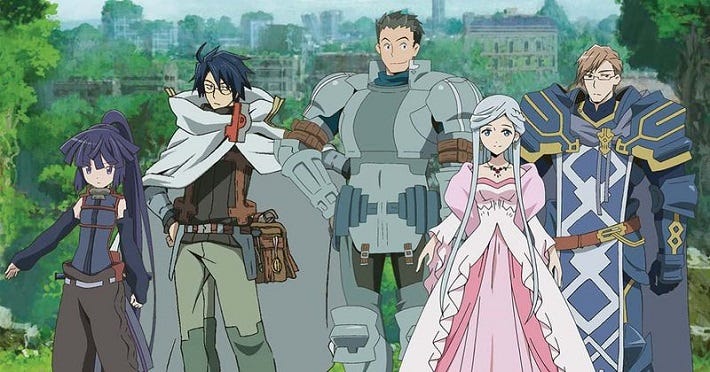
Log Horizon is hailed as one of the most intellectually stimulating isekai series of all time, maintaining a steady pace that keeps viewers engaged throughout. Despite its deliberate pacing, boredom is never a concern as the narrative unfolds with depth and intrigue.
11) No Game No Life
For some reason, shows that talk about the psychology of Hikikomori or shut-ins always tend to be fascinating. No Game No Life features two main protagonists who fit this description perfectly, both of whom are master gamers.
After being challenged to a game of chess by the god Tet and emerging victorious, they find themselves transported to Disboard.
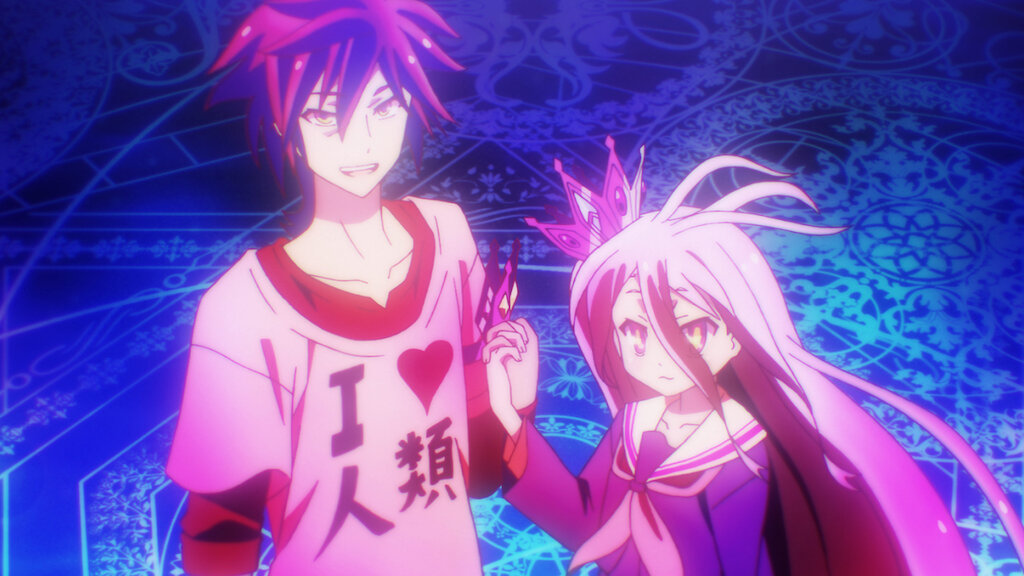
In Disboard, physical violence is prohibited, and all conflicts are resolved through games. This unique premise not only offers an intriguing perspective on conflict resolution but also showcases how the main characters interact.
The series is about the strategies and mind games involved in various games that determine everything in Disboard, from politics to personal disputes. The protagonists, Sora and Shiro, utilize their gaming prowess to challenge and outwit opponents, blending fantasy elements with psychological insights into their characters.
12) The Rising of the Shield Hero
Naofumi Iwatani, an otaku, finds himself abruptly transported to Melromarc with a crucial mission: he must assist in defeating the Waves of Catastrophe alongside three other legendary heroes. However, his role as the Shield Hero means he’s immediately looked down upon.
To make matters worse, the one person who promises to aid him betrays him, ruining his reputation and leaving him to face the mission alone if he ever hopes to return home.
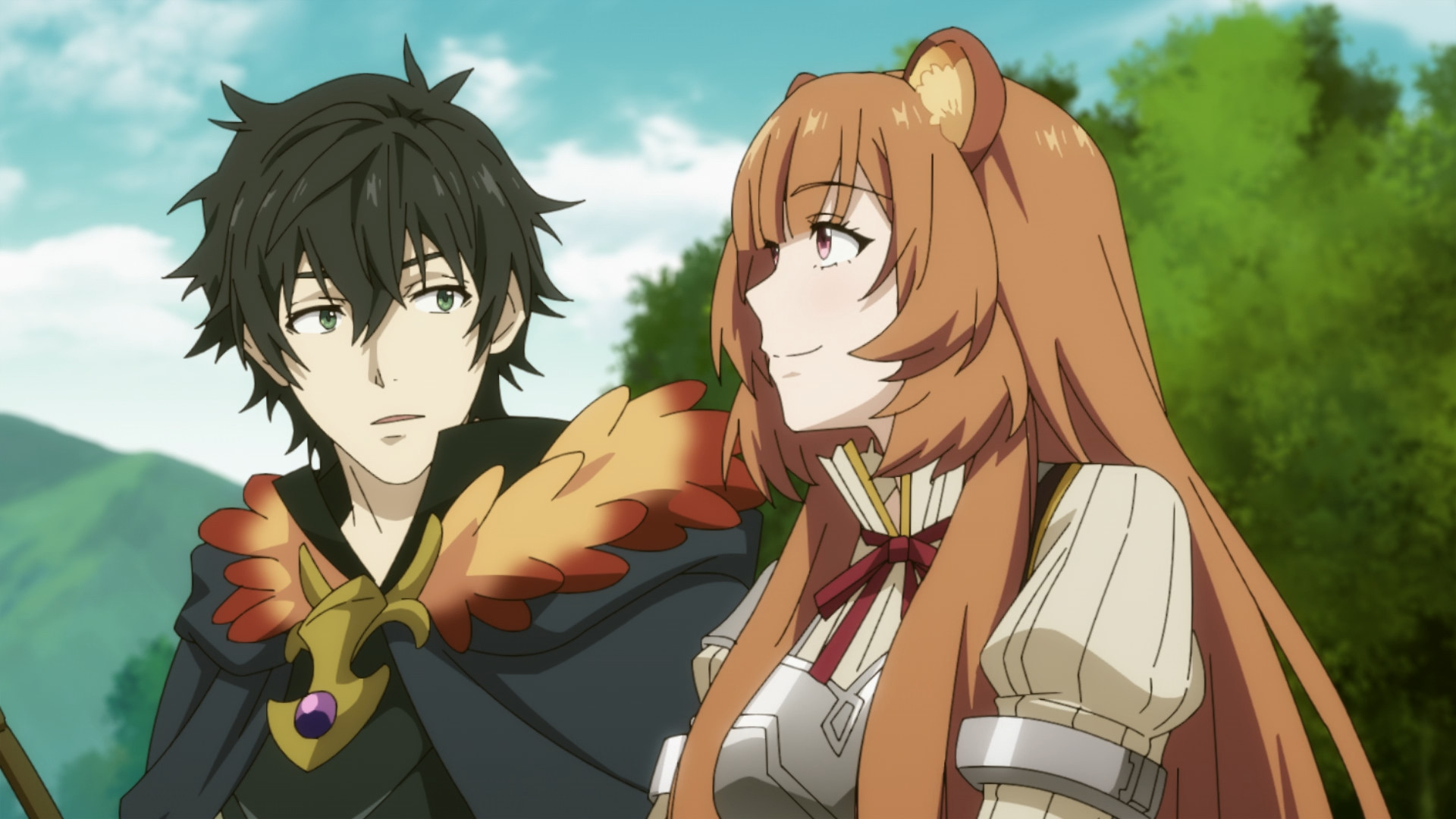
What sets this show apart and keeps it memorable years after its debut is its unique approach. When Naofumi is ostracized by those who need him most, he decides to prioritize himself over his community—a refreshing departure from the typical shonen hero trope.
This shift in focus allows for a deeper understanding of Naofumi’s character, showcasing his resilience and determination in the face of adversity.
The Rising of the Shield Hero challenges traditional hero narratives by portraying Naofumi as a flawed protagonist who must deal with betrayal and mistrust. His journey is not just about saving lives but also about redeeming his name and finding allies who believe in him despite the odds stacked against him.
13) Wise Man’s Grandchild
After a burnt-out office worker dies in a car accident, he finds himself reincarnated into a magical reality —this time as a baby! Retaining his memories from his previous life on Earth, he grows up as Shin Wolford, under the tutelage of Merlin, one of the greatest mages of their time.
If you’re searching for a hilarious isekai with a unique premise, Wise Man’s Grandchild is a perfect choice. The anime’s lighthearted atmosphere provides a welcome break from the intense shonen anime.
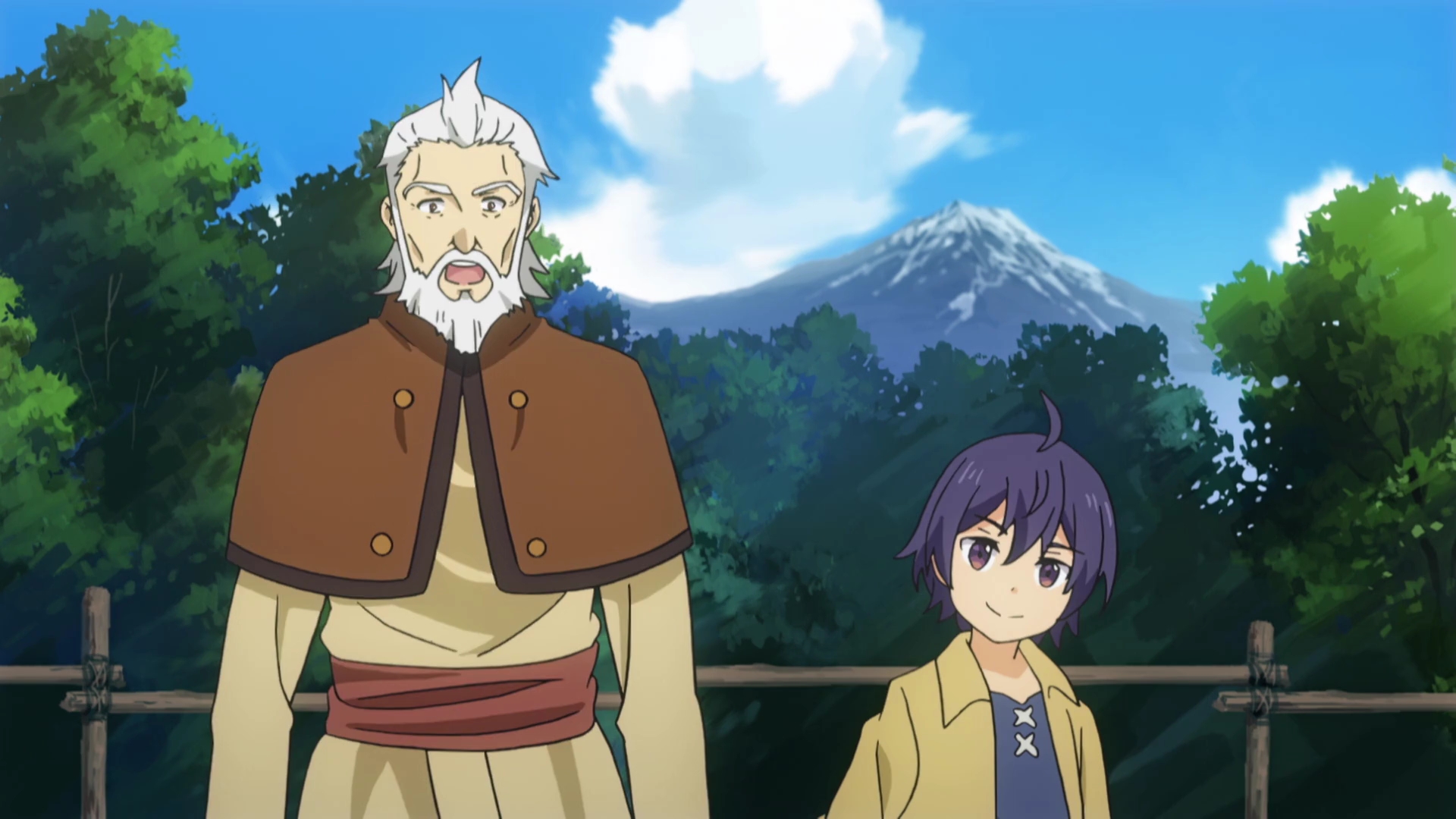
While it uses common isekai tropes, the show executes them in a way that captures all the good aspects without any of the cringe.
Wise Man’s Grandchild follows Shin’s journey as he lives his new reality, blending his modern knowledge with magical abilities to become a formidable force.
His interactions with the characters around him, including his friends and mentors, create a warm and engaging storyline. The anime strikes a balance between comedy, action, and fantasy, ensuring that viewers are entertained throughout.
14) GATE
Earth is suddenly invaded by beings from another dimension when a mysterious portal opens in the heart of Tokyo. Youji Itami, just trying to make his way to a doujinshi convention, finds himself thrust into a battle to defend innocent lives from the invaders.
His bravery catches the attention of those in power, leading to his selection for a mission to understand the new life beyond the portal—a mission that could either bring peace or ignite the largest war ever seen.
GATE stands out by offering a unique twist as a two-way isekai. By utilizing this concept, the series delivers epic battles and character dynamics rarely seen in other anime of its kind.

Youji Itami’s journey from a casual otaku to a reluctant hero is a central focus, showcasing how ordinary people can rise to extraordinary challenges when faced with unexpected circumstances.
The anime combines action-packed sequences with moments of humor and drama, as Youji and his team deal with the political tensions and cultural clashes between Earth and the new dimension.
As the story unfolds, viewers are treated to a blend of military strategy, fantasy elements, and a touch of realism that makes GATE a compelling watch for fans of both isekai and action genres.
15) Sword Art Online
Sword Art Online plunges players into a virtual reality MMO that turns into a deadly trap when its creator makes it impossible to exit without completing the game. The stakes are dire: dying in the game means dying in real life. Kirito and Asuna find themselves fighting for survival and searching for a way out of this life-or-death situation.
Sword Art Online has sparked debate, but there are undeniable aspects of the show worth praising. The virtual game universe is meticulously crafted, drawing viewers into its scenery and intense battles.
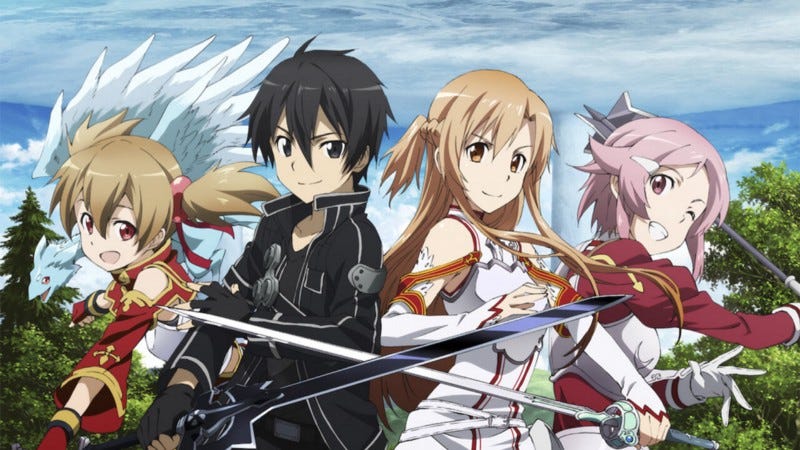
Kirito, as the protagonist, fits well into the narrative, demonstrating growth and resilience as he confronts the challenges of SAO. While opinions vary, the antagonists in the series are intriguing, each with their own compelling motives and complexities that add depth to the storyline.
The dynamic between Kirito and Asuna also stands out, evolving from allies fighting for survival to partners who freely choose to jump in new virtual realities together.
16) In Another World With My Smartphone
When God accidentally zaps Toya Mochizuki with a lightning bolt, he’s really sorry – but apologies alone won’t cut it.
To make amends, Toya finds himself reincarnated in a fantasy dimension with incredible magical powers far beyond what he ever had in his previous life. As if that weren’t enough, God grants his request to bring his smartphone along for the ride.
What sets this anime apart is Toya’s possession of a smartphone, which adds a unique twist to the typical isekai storyline.
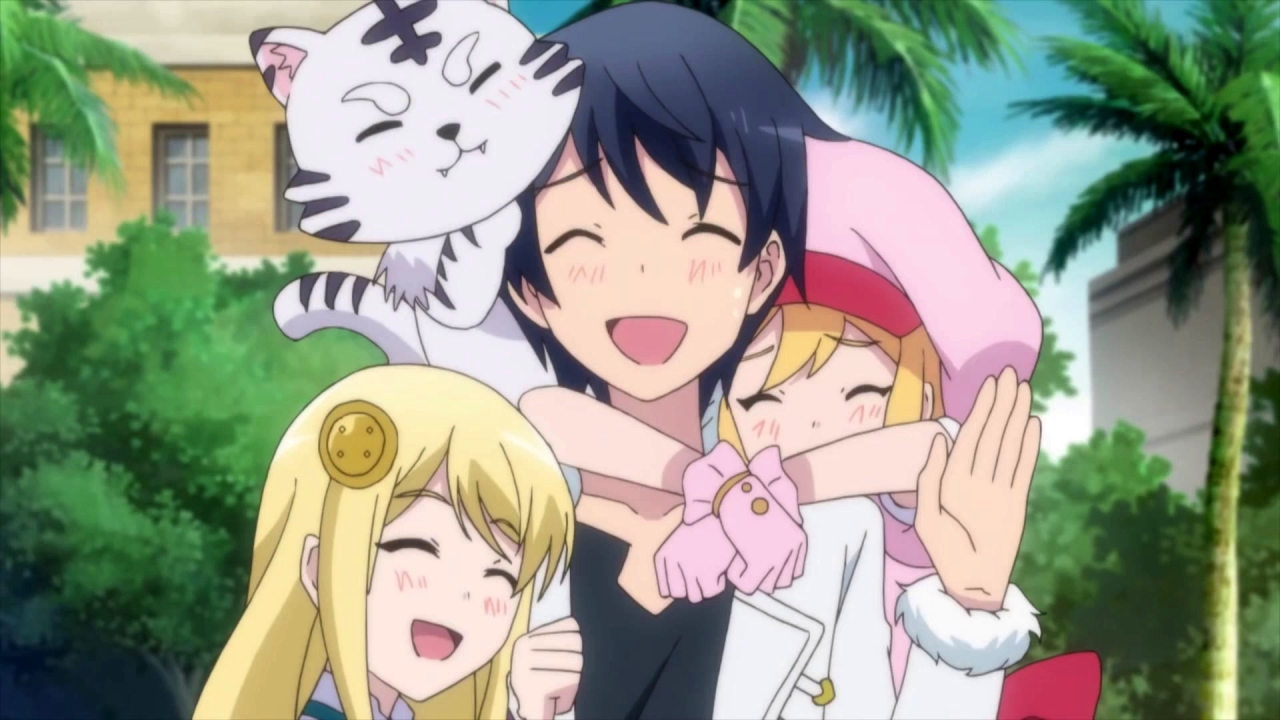
While most protagonists become overpowered due to innate abilities or special skills, Toya wields modern technology to achieve the same results. This unconventional approach makes for a refreshing and lighthearted series filled with humor and fun.
The anime doesn’t take itself too seriously, offering viewers a delightful escapade through Toya’s smartphone becomes his secret weapon. Whether he’s using it to solve problems or simply enjoying its conveniences, the blend of fantasy and modern technology creates a charming and entertaining experience.
17) The Devil Is A Part-Timer
Satan finds himself stuck in the human dimension without any of his demonic powers. To make ends meet, he takes a job at a fast-food restaurant – a far cry from his former role as the lord of all evil. Surprisingly, he excels in his new position at MgRonald’s, showcasing the same skills that once made him the Demon Lord.
This show is exactly as ridiculous and hilarious as it sounds. Only in the isekai genre would you find something as comical as Satan flipping burgers at a fictional McDonald’s. Despite its absurd premise, the series is undeniably entertaining and memorable.
It cleverly blends the supernatural with everyday life, offering a fresh take on both isekai and workplace comedies.

The juxtaposition of Satan’s demonic background with the mundane challenges of fast-food work creates plenty of comedic opportunities. From customer complaints to mastering the grill, Satan’s antics never fail to bring laughter.
Moreover, the show doesn’t shy away from poking fun at itself and its own outlandish concept. It embraces its quirky premise wholeheartedly, ensuring viewers are in for a fun and enjoyable ride. It’s a testament to the creativity and humor that can arise from mixing fantasy and the ordinary.
18) Saga Of Tanya The Evil
When a cynical Japanese salaryman defies Being X, a supposed god, he gets transported to another dimension in a whole new form. Instead of his adult self, he wakes up as a small, impoverished girl stuck in a war-torn zone.
Armed with magic, the newly named Tanya von Degurechaff swiftly climbs the military ranks, soon becoming one of the most feared warlords ever seen.
This anime stands out in a unique way. The contrast of a young girl instilling terror in her subordinates creates a surprising and comedic dissonance. Seeing Tanya maneuvers this new universe and find ways to excel is both fascinating and entertaining.
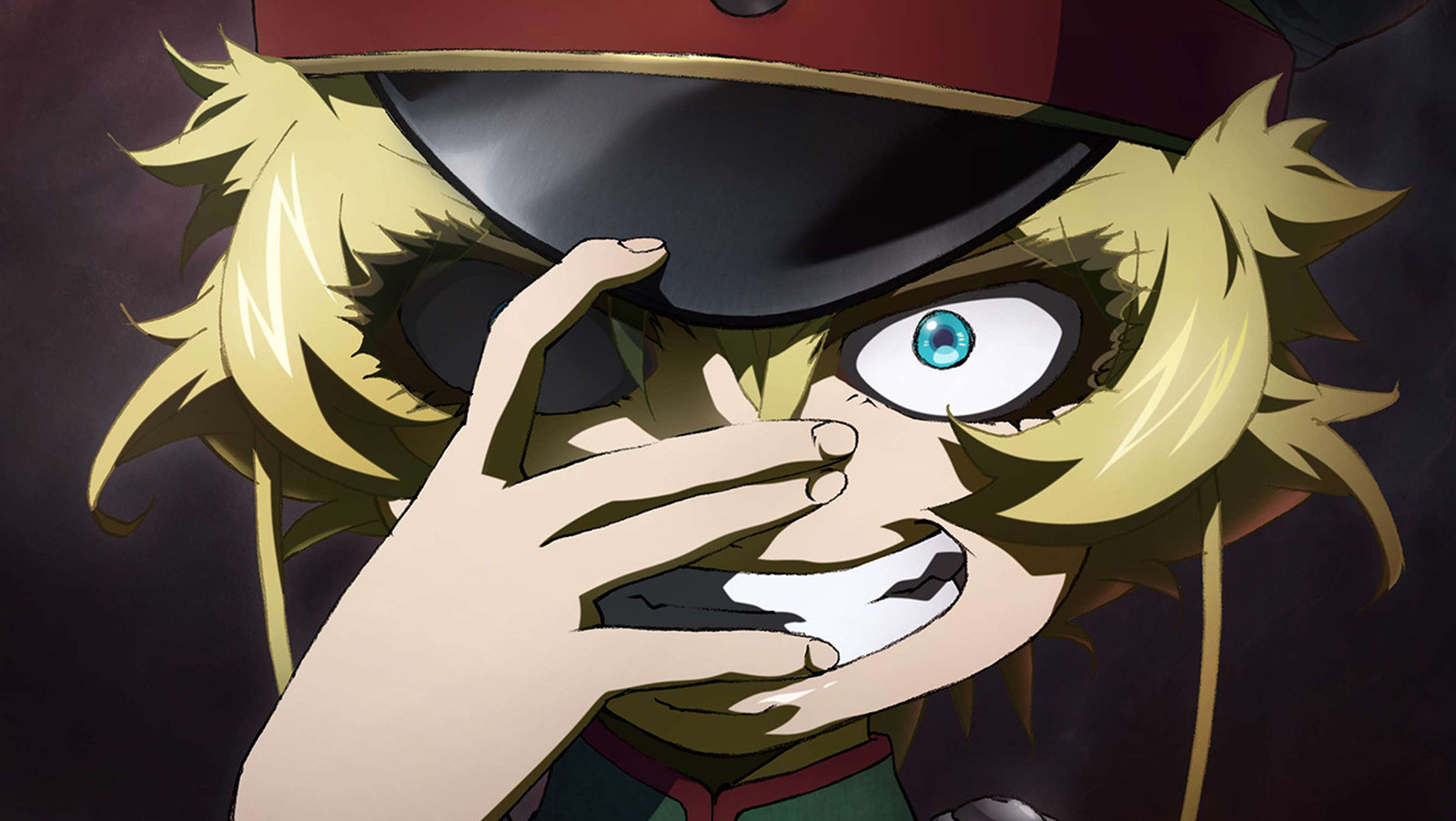
The series brilliantly blends humor with Tanya’s ruthless ambition and cunning, making it a great watch. As Tanya strategizes her way through military campaigns, the juxtaposition of her innocent appearance and formidable leadership skills adds depth to her character.
It’s a story that shows the aftermath of war and survival in a fantastical setting, using Tanya’s journey as a lens to examine power dynamics and moral dilemmas.
19) Drifters
Toyohisa Shimazu, a rearguard in the Japanese military circa 1600, finds himself thrust into a strange space alongside warriors from different timelines. Here, he becomes a Drifter, fighting against the oppressive Ends who control the Orte Empire and persecute magical creatures like elves.
What sets Drifters apart is its unique approach to the isekai genre. Unlike many others where modern-day characters adapt to a magical reality. Toyohisa is already a seasoned soldier familiar with war.
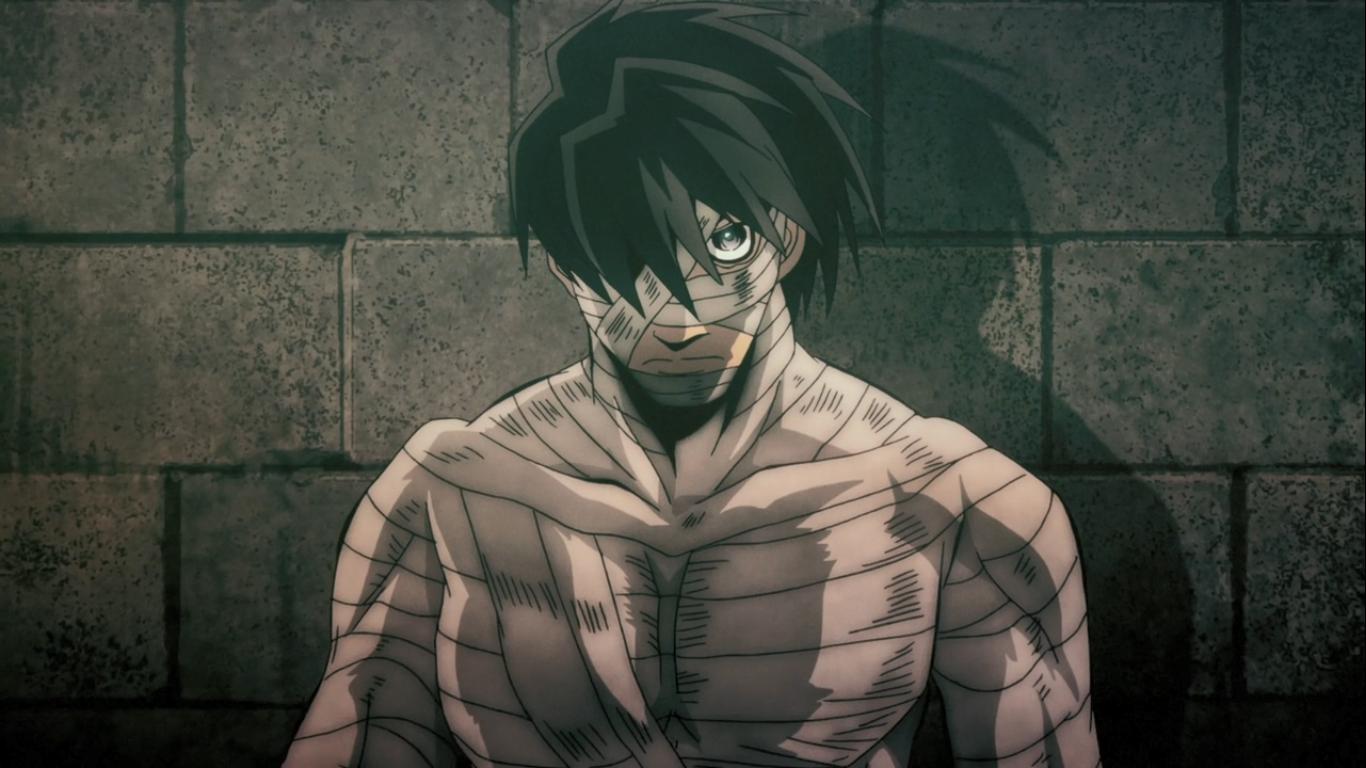
The series shows Toyohisa’s journey as he applies his military expertise in a fantasy setting, blending historical elements with fantastical battles and characters. It’s not just about adapting to magic but also about strategizing against formidable foes and forging alliances with other legendary warriors.
Drifters offers a compelling mix of action and strategic warfare, showcasing Toyohisa’s leadership skills and the clash of different historical figures. The anime keeps viewers engaged with its fast-paced battles and character-driven plot, making it a must-watch for isekai enthusiasts.
20) Spirited Away
Spirited Away tells the story of Chihiro, a 10-year-old girl who suddenly finds herself trapped in a mysterious dimension populated by spirits.
Her parents are transformed into pigs, leaving Chihiro to deal with this strange and often dangerous reality alone. With the help of a boy named Haku and other kind spirits, Chihiro heads on a journey to save her parents and find a way back home.
What makes Spirited Away exceptional is its poignant portrayal of Chihiro’s growth from a timid and scared girl into a brave and determined young woman. The film beautifully captures her coming-of-age journey, filled with challenges, friendships, and self-discovery.

Spirited Away is mesmerizing and meticulously crafted, filled with both breathtaking beauty and eerie darkness. From the bathhouse bustling with unique spirits to the mystical train scene that captures the imagination, every detail of this alternate reality is intricately animated and visually stunning.
At its heart, Spirited Away is a story about resilience, compassion, and the courage to face adversity. It blends fantasy with real themes, offering a profound commentary on environmentalism, greed, and the importance of remembering one’s identity.
21) My Next Life as a Villainess: All Routes Lead to Doom!
Imagine being reincarnated into your favorite otome game, but not as the beloved heroine, but as the despised villainess! That’s exactly the fate that befalls a game-loving girl who finds herself in the shoes of Catarina Claes, the antagonist in her favorite game.
According to the game’s plot, Catarina is destined for doom, but our protagonist isn’t going down without a fight. Determined to rewrite her fate, she heads on a mission to alter the game’s storyline and secure her happy ending.
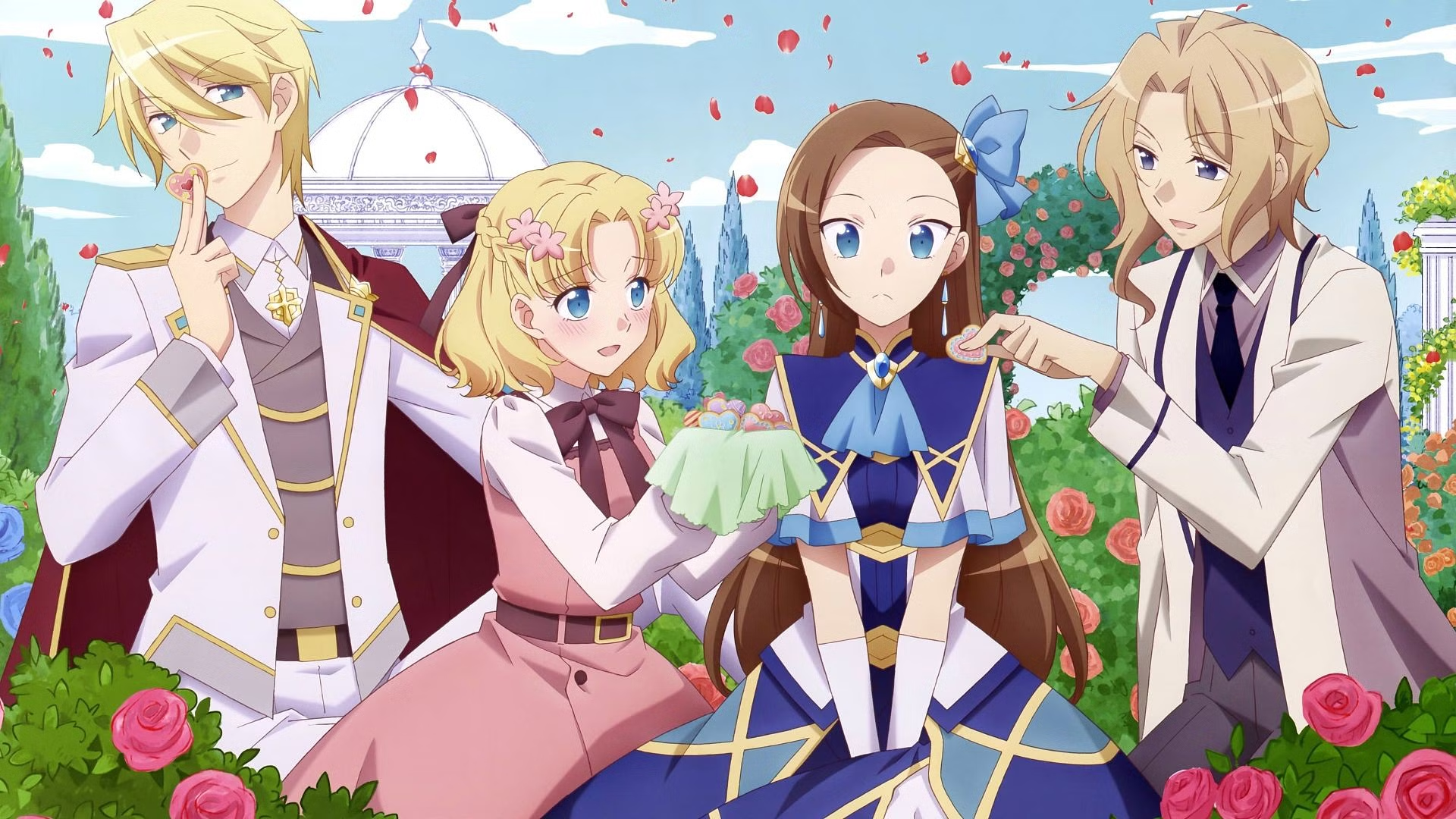
My Next Life as a Villainess: All Routes Lead to Doom! is a groundbreaking series in the villainess isekai subgenre. It was one of the pioneers in using the reincarnated as a villain concept that has since become incredibly popular.
The charm of the show lies not only in its unique premise but also in its endearing protagonist, who manages to win over audiences with her quirky personality and determination.
The anime has played a pivotal role in shaping the villainess fanbase within the isekai genre. By presenting a lovable and relatable main character, it has garnered a strong following and contributed to the widespread appeal of stories featuring reincarnated villains.
22) Isekai Quartet
Isekai Quartet is a delightful crossover that brings together characters from four of the most beloved isekai anime: KonoSuba, Overlord, Re:Zero, and Saga of Tanya the Evil.
In this unique series, chibi versions of these iconic characters find themselves in a mysterious school after pressing a random button that appears before them. It’s an isekai within an isekai!
This show is a must-watch for any isekai fan because it offers a rare opportunity to see your favorite protagonists interacting in ways you won’t find anywhere else.

The charm of Isekai Quartet lies in its ability to blend the distinct personalities and quirks of these characters from different universes into hilarious and heartwarming scenarios. Watching their new school life and adventures is as enjoyable as it is adorable.
What sets Isekai Quartet apart is its playful approach to bringing together characters who would never cross paths under normal circumstances. It’s a celebration of the isekai genre, offering fans a light-hearted and entertaining experience that pays homage to the series they love.
Whether you’re a fan of the explosive comedy of KonoSuba, the dark fantasy of Overlord, the intense drama of Re:Zero, or the military strategy of Saga of Tanya the Evil, Isekai Quartet has something for everyone. It’s a charming blend of humor, camaraderie, and unexpected friendships that is sure to leave a smile on your face.
23) Restaurant to Another World
Closed on Saturdays, Western Restaurant Nekoya takes advantage of its free time to venture into other realities and introduce inhabitants to never-before-seen food like curry, parfaits, and other delectable treats. As they enjoy these meals, viewers also get a peak into the lives and magic of these denizens.
This anime isn’t your typical isekai tale; its standout feature lies in its unique focus on food. The artistry and presentation of the dishes in Restaurant to Another World are so mouthwatering that you’ll find yourself craving them throughout the show.
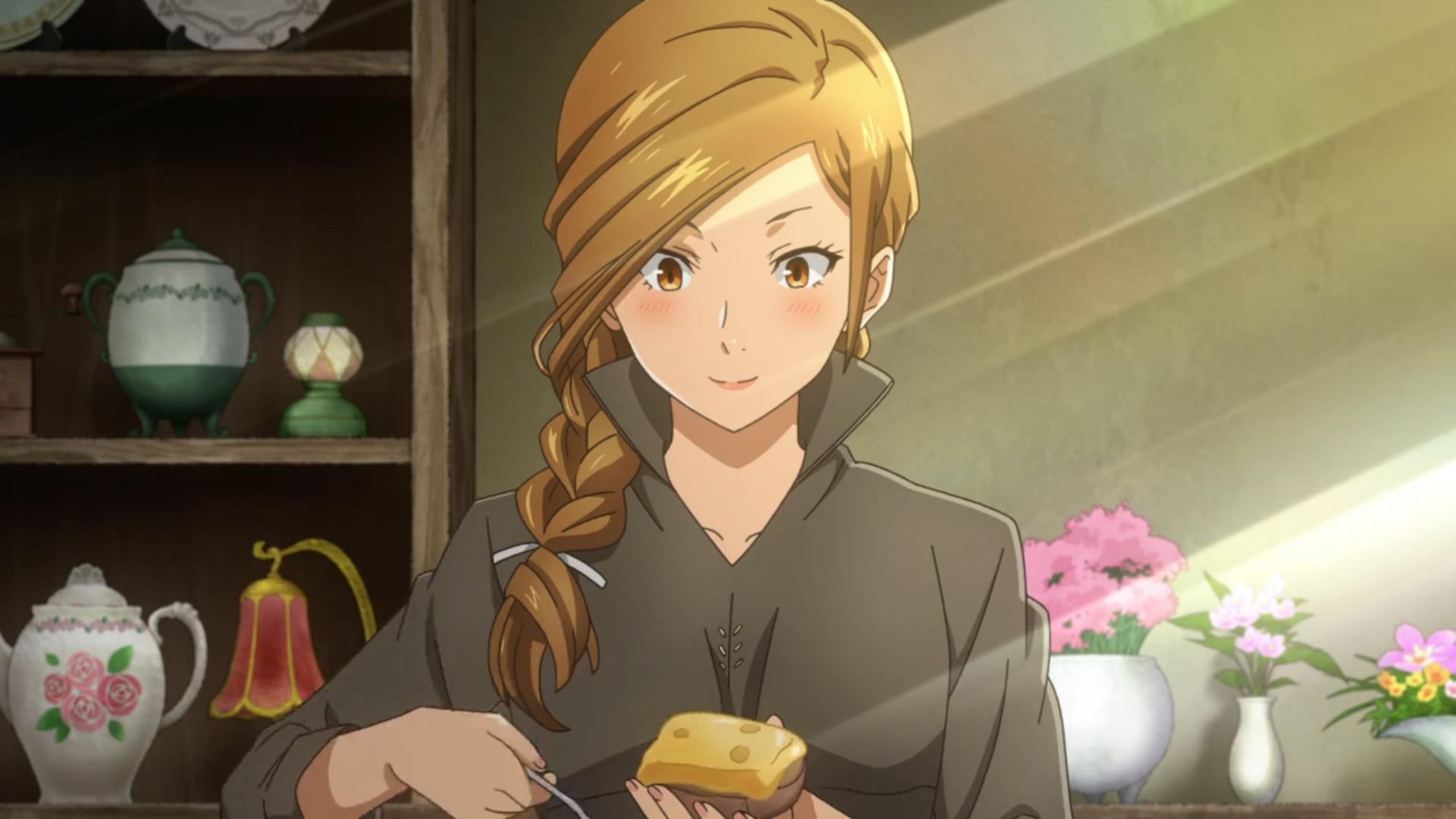
This culinary aspect adds a distinctive flavor to the isekai genre, making it a refreshing and enjoyable watch.
What sets Restaurant to Another World apart is how it blends the simplicity of serving food with the addition of fantasy. Each episode not only introduces a new dish but also talks about the background and stories of the characters who visit the restaurant.
It’s a heartwarming experience that combines the joy of discovering new cuisine with the wonder of understanding diverse cultures and traditions.
24) Now and Then, Here and There
Shuzo Matsutani, a cheerful and optimistic young boy, unexpectedly finds himself thrust into a dimension torn apart by warfare, genocide, and unspeakable atrocities, challenging his sunny disposition.
Now and Then, Here and There stands out in the isekai genre for its ability to depict other dimensions as genuinely terrifying. Unlike most anime of its kind, this series takes on a much darker and grittier tone. It forces viewers to confront the harsh realities of war, presenting a narrative that is both compelling and unsettling.
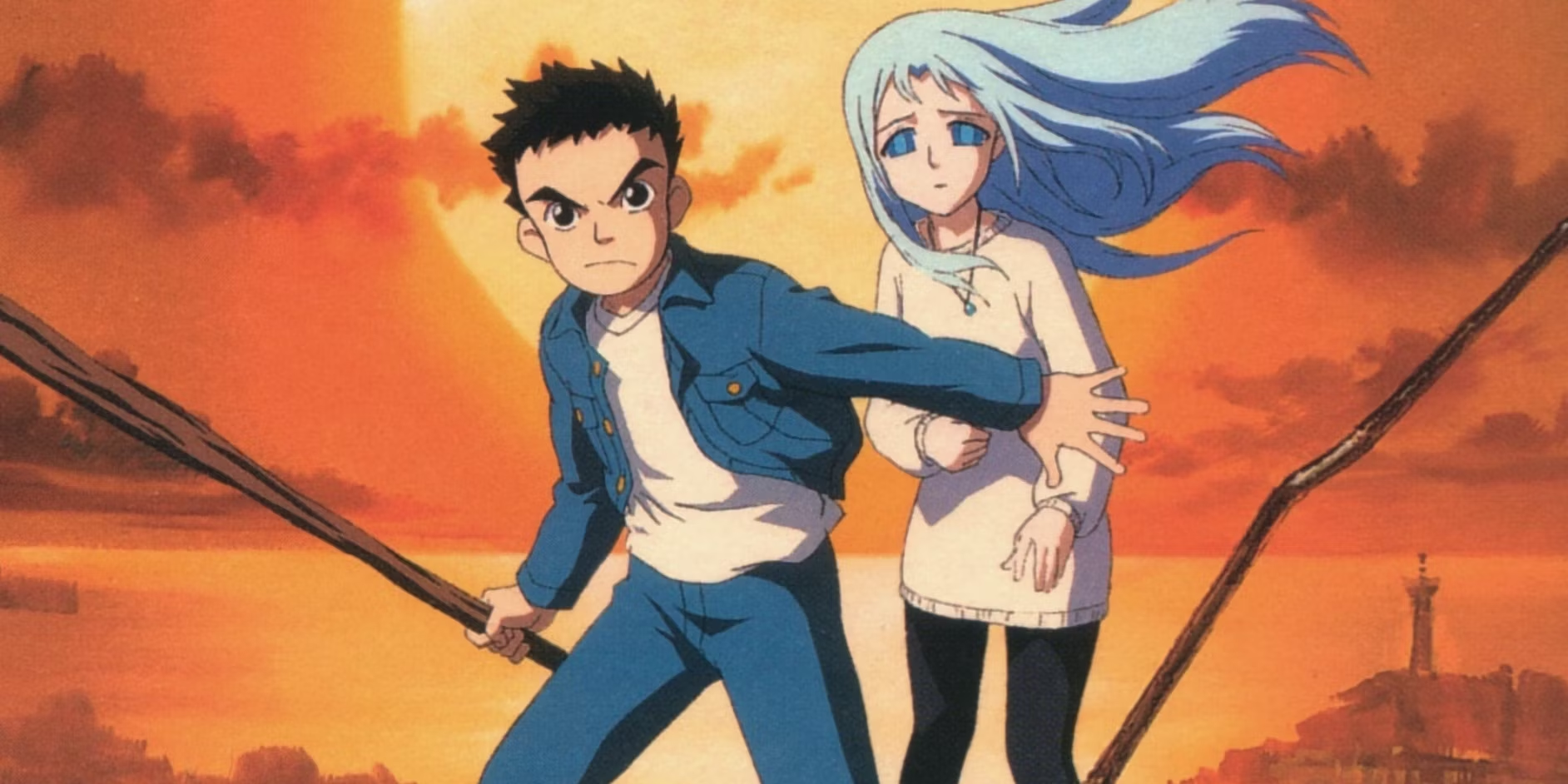
The show is not for the faint of heart. It shows themes of suffering, loss, and the brutality of conflict, making it a powerful and thought-provoking watch. It serves as a stark reminder of the horrors of war and the impact it has on both individuals and societies.
Shuzo’s journey is a testament to the resilience of the human spirit in the face of unimaginable adversity. The anime shows complex moral dilemmas and ethical questions, challenging viewers to reflect on various choices.
25) Re:Creators
Aspiring light novel author Souta Mizushino finds himself unexpectedly pulled into the very anime he was watching for inspiration.
To his surprise, he isn’t alone; Celestia Yupitilia, one of the main characters from the show, is also transported to reality alongside him. What follows is a series of events where more fictional characters begin to cross over in real time. .
Re:Creators excels in blending fiction with reality in a way that charms viewers. The seamless integration of CGI into the action scenes adds to the excitement of the story. The anime carefully expands on its exposition, providing a well-thought-out narrative that keeps fans engaged.
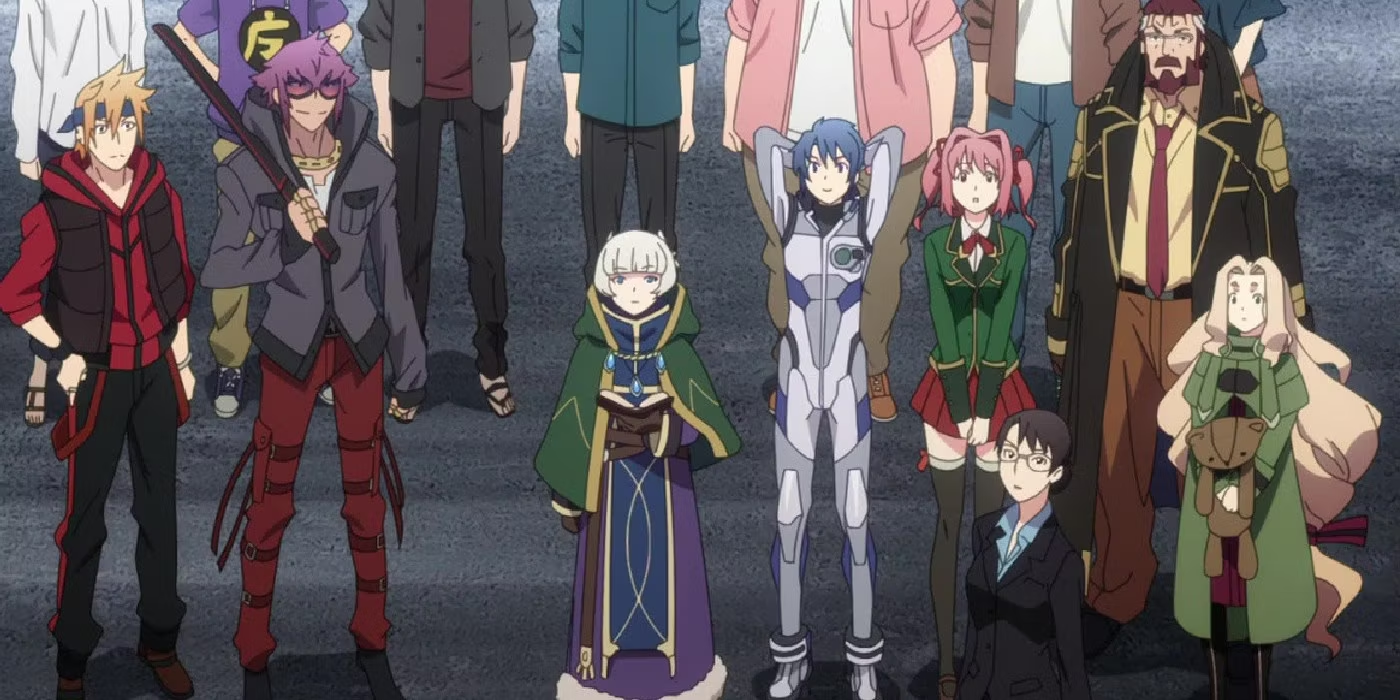
The unique premise of fictional characters coming to life and interacting with their creators raises interesting questions about creativity and existence. It offers viewers a chance to see how these characters adapt to the reality and how their creators deal with the consequences of their creations coming to life.
The action scenes are a highlight, making the battles between characters from different fictional realities both entertaining and visually stunning. The show balances these intense moments with deeper reflections on identity and purpose, making it a thought-provoking watch.
Memes of the Day
Bayonetta
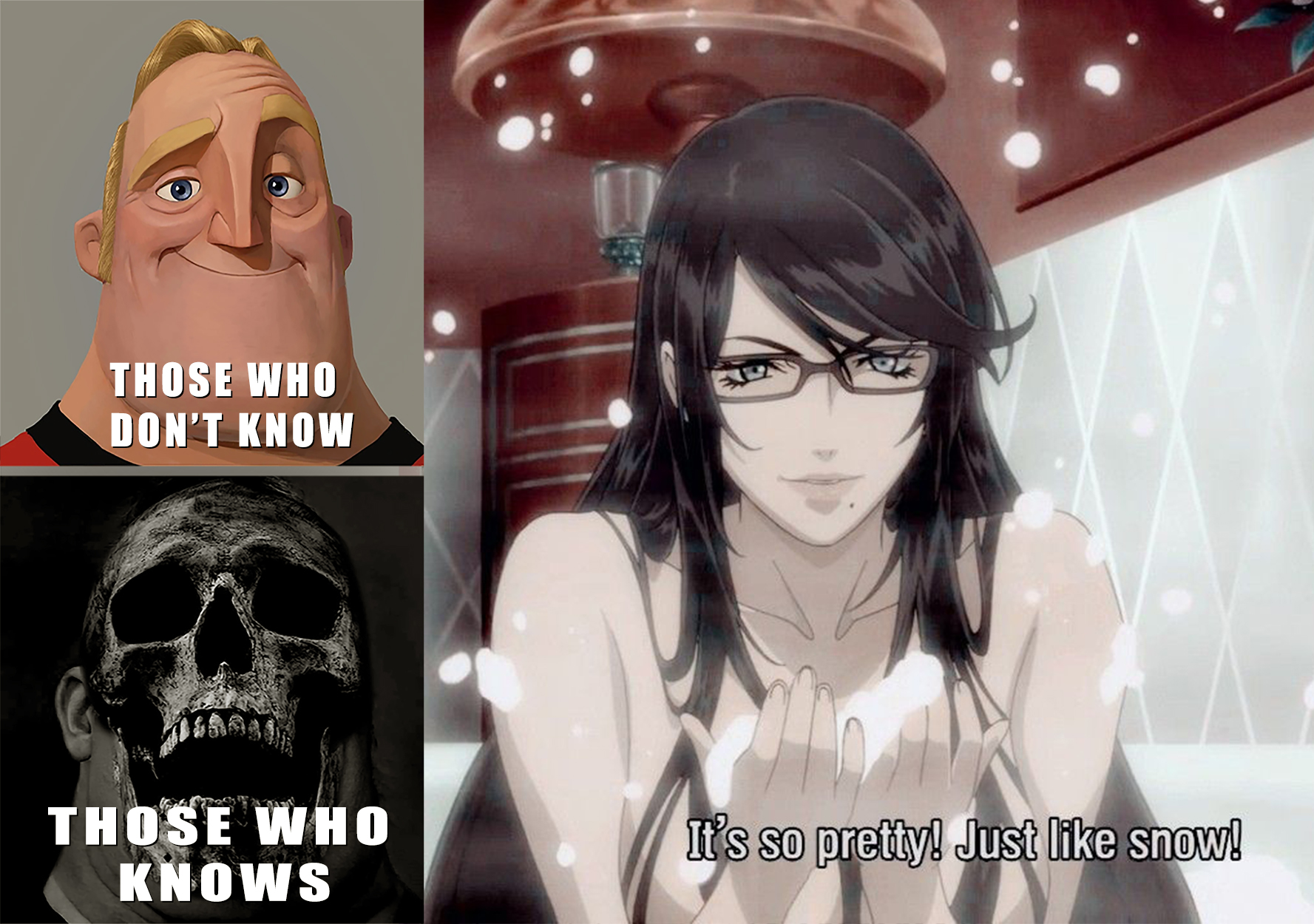
I WANT TO BE BULLIED BY MY MOM

No Waifu No Life!

For Full Images search – Pixiv 61106063

Office Shitbag Alert

konosubo

Search – Pixiv 118632508

Sauce: 435899
Otaku Tomodachi to no Sex wa Saikou ni Kimochi Ii [Alp]

STARS-772

Kisei Saki De…



